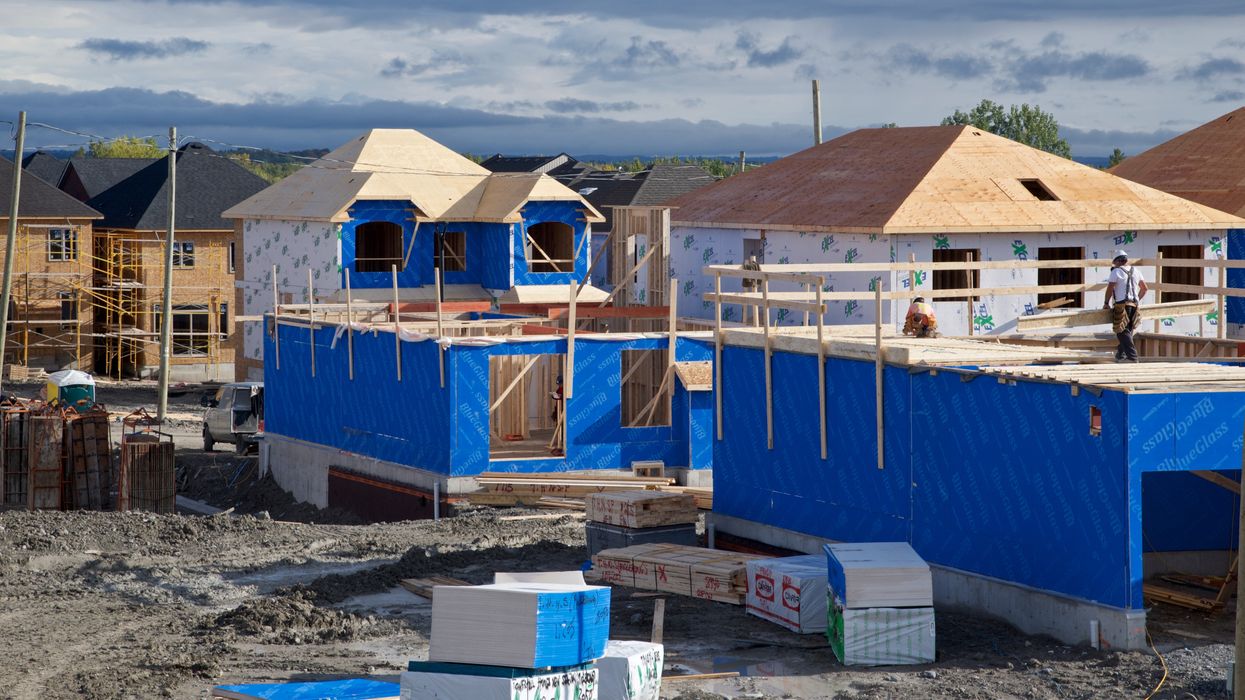When it comes to tackling the housing supply and affordability crisis, we seem to perpetually take one step forward followed by two back.
Let me explain.
On the positive side, there’s been a cultural shift and recognition by all levels of government that the problem is very real, and we must find ways to get shovels in the ground quicker for housing. That seemed to be the consensus amongst speakers at a recent RESCON housing summit.
The senior levels of government have cut sales taxes on new purpose-built rental housing. In Ontario, a new Provincial Planning Statement is going into effect that will include measures to streamline planning regulations and approvals processes, while the federal government has established a $4-billion Housing Accelerator Fund to inspire initiatives to build homes faster.
On the negative side, though, any savings from the sales tax savings are negated by the fact that development charges (DCs) are going up. In Toronto, DCs alone for single-detached homes have increased from $12,910 in 2010 to $141,139 in 2024 – a whopping 993% hike. Taxes, fees, and levies account for 31% of the cost of a new home and the figure is rising.
The numbers are alarming – and contribute substantially to the cost of housing. Yet, difficult as it is to believe, there are still some who deny that taxes and bureaucracy are indeed a problem.
For example, this publication ran an article recently in which Gord Perks, Chair of Toronto’s Planning and Housing Committee, dismissed arguments that zoning by-laws, fees and fines, and the public consultation process are barriers to housing. He called the claims utterly false.
Afterwards, Perks told Storeys that, “The claim that government interventions through public consultations, zoning regulations, and fees and charges have stopped housing from being affordable is nonsense. Government action is not why there’s a housing affordability crisis in Toronto.”
Understandably, some in Toronto’s development industry are up in arms over the denial. So are builders. If the chair of the planning and housing committee doesn’t think there’s an issue with exorbitant taxes, fees and levies, and pace of approvals for housing, “Houston, we have a problem.”
The fact of the matter is that the taxes, fees, and levies have pushed the cost of housing to astronomical heights. Working people can no longer afford to live in the city and are moving elsewhere.
DCs, in particular, are killing the new home market. The charges have increased 42% in less than a year in the Greater Toronto Area.
Cutting the fees would make housing more affordable. A study done by the CMHC figured that if builders didn’t have to pay permit, municipal, and guarantee fees, development charges, or density payments, input costs for a 24-storey condo in Toronto could be decreased 15%.
That’s a big savings.
Perks should take a closer look at how bureaucracy and red tape are stymieing housing construction.
In Toronto, figures show the five-year average timeline for a site plan decision is 912 days while the five-year average for combined Official Plan amendment/zoning bylaw applications is 729 days.
A recent report commissioned by BILD GTA and conducted by Altus Group noted that the average of 20.3 months per application type can add between $43,000 and $90,000 per unit.
At RESCON’s housing summit, the message was crystal clear. There is an urgency to fix the situation as the taxation and approvals system is broken. If we don’t, conditions could get even worse.
New home building is not keeping up with population growth and application submissions have fallen significantly over the last couple of years which threatens our future housing supply.
Condo sales in the GTA are beyond terrible, and 81% below the 10-year average. Pre-construction sales are down significantly, and rental housing starts are down 30% from 2023 and still falling.
Nationally, more than 60% of builders see their housing starts dropping by half in 2024, according to the Q2 2024 results for the CHBA Housing Market Index (HMI), as builder sentiment was negative for the eighth consecutive quarter.
Home prices and the inability of buyers to access mortgages mean sales aren't moving. On top of that, Ontario and BC have high development taxes and municipal red tape that stifles supply.
It’s a recipe for disaster.
Mortgage rule changes, along with reduced interest rates, will help but only marginally. We are in for tough times unless we get our act together.
They say the first step in recovery is admitting there’s a problem. Taxes and bureaucracy remain a problem, plain and simple. It is high time we stop denying that fact and take real action.




















